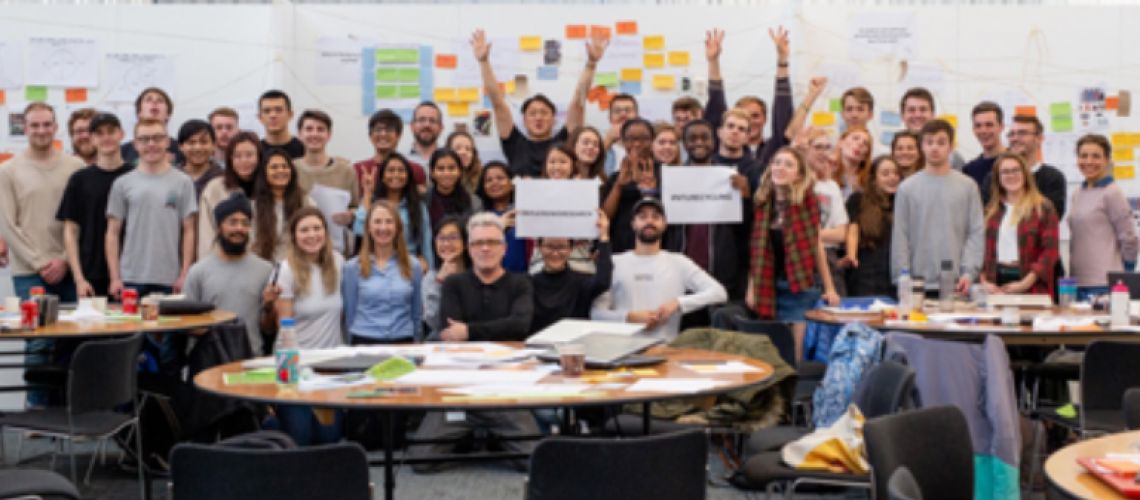Product Design Workshop
14 Jan 2019
Nottingham Trent Uni Product Design final years tackle recycling issues in crowdsourcing workshop
Students in their final year of Product Design courses in the School of Architecture, Design and the Built Environment recently had the opportunity to take part in one-day workshop entitled ‘Increasing Awareness to Recycling – a Case of the NTU Campus’. They were tasked with investigating and compiling the challenges and opportunities of recycling on site, with reference to infrastructure, signage, knowledge and awareness. The workshop was the first collaboration between NTU Product Design lecturer Dr Daniel Shin and Enva.
Comprising of almost 100 students, the workshop was created to conduct a significant body of primary research in a short amount of time by using the power of ‘crowdsourcing’. This is a technique for coordinating a large group of people in an open-ended exploration of research, which allows everyone involved to participate and to investigate the chosen topic. The workshop aimed to provide students with an understanding of this method to help provide research-based direction for them after graduation.
Enva provided support to staff and students through detailed industry knowledge of recyclable materials and key challenges and misconceptions that NTU face. This included the realisation that ‘meal deal’ lunch options such as sandwich packaging, crisp packets, napkins and disposable coffee cups were all non-recyclable. This proved to be a shocking realisation for many participants who pledged to alter their behaviour as a result. Enva also led a practical waste composition audit during the workshop to allow students to obtain new raw data (see picture). Other research methods of the workshop included photography, surveys, online polls, field observations and interviews.
Dr Daniel Shin, Senior Lecturer in Product Design and the member of staff responsible for setting up the workshop, emphasised how important this method of learning is and told us about the ways in which crowdsourcing can be useful for academic research. He commented: “These sessions are beneficial to help our students visualise the outcome of their work by using the different forms and methods of communication which can help them to become much more engaged and involved in their learning. We want to change the dynamics of our students’ learning, and these workshops help to achieve that.”
James, a BA (Hons) Furniture and Product Design final year detailed what he gained from the experience: “I want to focus my dissertation on the subject of recycling as a whole so today has been so helpful for my research and idea creation. The main thing that stood out to me was how misleading some of the companies who make these products are. So much of what we use isn’t recyclable, or can’t be recycled once used due to grease, food residue or mishandling – so it makes me want to think more about what and how I recycle in the future.”
We think the workshop was a huge success and were delighted to see such high levels of enthusiasm and engagement from staff and students alike. We hope participants learnt both research techniques and useful recycling information that they will take forwards with them in their careers.

